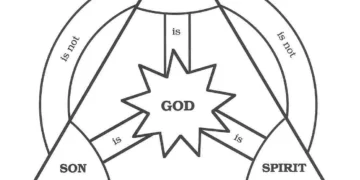In the tapestry of human existence, there exists a complex network of vices that test our moral compass. These vices, commonly known as the seven deadly sins, have fascinated both philosophers and theologians for centuries. In this expository article, we delve into these intriguing sins, exploring their impact on our daily lives and unveiling the wisdom provided by divine teachings to help us steer clear of their grasp.
The Seven Deadly Sins
1. Lust: Desires Unleashed
At the heart of this sin lies an insatiable desire for pleasure and gratification. Lust makes us slaves to our impulses, impairing our ability to perceive others as fully realized individuals. In today’s hypersexualized society, the allure of lust can be particularly challenging to resist. Avoiding this temptation entails recognizing the inherent worth of all individuals and establishing meaningful connections based on respect and empathy.
2. Gluttony: Consuming More Than We Need
Gluttony is not limited to the mere act of overeating. It extends to all facets of excess, whether material possessions, time, or indulgence in physical or mental pleasures. While desires are natural, unchecked gluttony can lead to greed, wastefulness, and imbalance. By cultivating self-discipline and appreciating the value of moderation, we can overcome the grip of gluttony and strike a harmonious equilibrium in our lives.
3. Greed: The Insatiable Pursuit of Possessions
Greed is the ever-present hunger for wealth, power, or material possessions beyond what is necessary or justified. Its misleading allure can distort our perception of true happiness, trapping us in a cycle of perpetual desire. Recognizing the transience of worldly possessions and reevaluating our priorities can help free ourselves from the clutches of greed and find contentment in more meaningful aspects of life.
“These six things the Lord hates, yes, seven are an abomination to Him: a proud look, a lying tongue, hands that shed innocent blood, a heart that devises wicked plans, feet that are swift in running to evil, a false witness who speaks lies, and one who sows discord among brethren.” – Proverbs 6:16-19
4. Sloth: The Danger of Apathy
Sloth encompasses a lack of motivation, purpose, or initiative. It manifests as chronic laziness, inertia, or an unwillingness to strive for personal growth. In today’s fast-paced world, sloth can infiltrate our lives subtly, hindering progress and inhibiting personal development. Overcoming sloth requires embracing a proactive mindset, setting goals, and seeking out self-improvement opportunities. By cultivating a sense of purpose, we can avoid the stagnation brought about by sloth.
5. Wrath: The Unleashing of Destructive Anger
Wrath is the uncontrollable display of anger or vengeful behavior. It blinds us to reason, leading to destructive actions that harm both ourselves and those around us. Taming wrath demands emotional intelligence, fostering empathy, and practicing forgiveness. By seeking peaceful resolutions, communicating effectively, and channeling anger into positive outlets, we can break free from the vicious cycle of wrath.
6. Envy: Jealousy and its Poisonous Grip
Envy arises from a sense of covetousness and a lack of satisfaction with our own accomplishments or possessions in comparison to others. It breeds resentment and bitterness, poisoning our relationships and hindering personal growth. Overcoming envy begins with cultivating gratitude and recognizing our unique gifts and strengths. Focusing on self-improvement rather than comparing ourselves to others allows us to break free from the clutches of envy.
7. Pride: The Pitfall of Arrogance
Pride represents an inflated sense of self-importance and superiority. It blinds us to our own flaws, blocks personal growth, and hampers healthy relationships. Embracing humility becomes paramount, acknowledging our limitations and learning from others’ perspectives. True self-confidence lies in recognizing one’s worth without belittling the worth of others.
“But now you yourselves are to put off all these: anger, wrath, malice, blasphemy, filthy language out of your mouth.” – Colossians 3:8
Heeding the Words of God
The seven deadly sins, ever-present in our daily lives, underscore the moral challenges we face as humans. Drawing wisdom from divine teachings can guide us towards avoiding their pitfalls. By cultivating virtues such as moderation, gratitude, self-discipline, and humility, we can build resilience against these temptations and strive for a life grounded in compassion, contentment, and purpose. As we navigate the intricacies of our moral journey, heeding the words of God offers us a guiding light, enabling us to transcend the quagmire of these sins and embrace a more virtuous existence, free from the seven deadly sins.
















































































